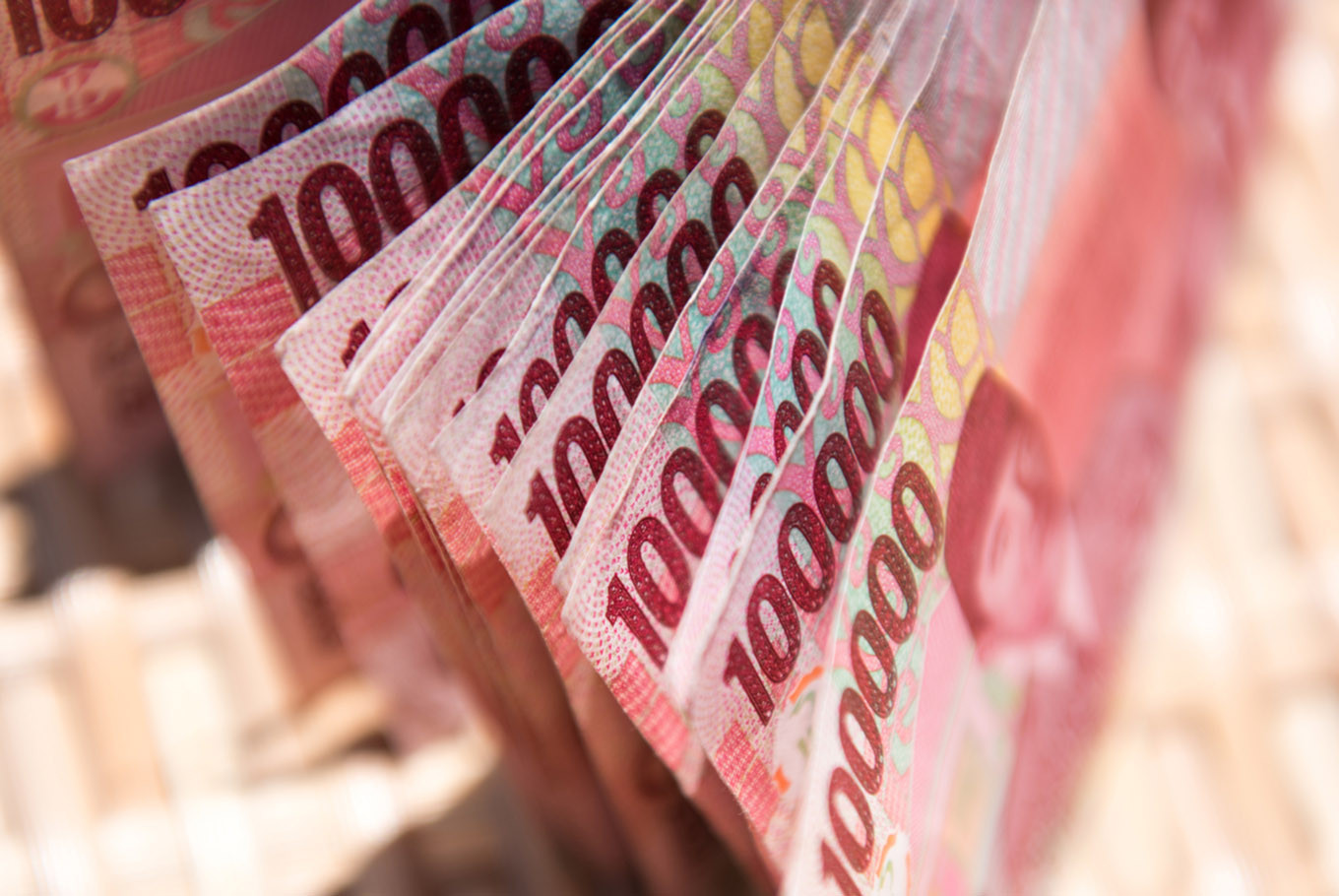Popular Reads
Top Results
Can't find what you're looking for?
View all search resultsPopular Reads
Top Results
Can't find what you're looking for?
View all search resultsOJK confirms Kookmin Bank acquisition of Bukopin
Kookmin Bank, which currently owns 22 percent of Bank Bukopin, deposited US$200 million into an escrow account on Thursday as part of its commitment to acquiring the Indonesian bank’s shares.
Change text size
Gift Premium Articles
to Anyone
T
he Financial Services Authority (OJK) has confirmed that one of South Korea’s largest banks, KB Kookmin Bank, is currently finalizing its acquisition of publicly listed Bank Bukopin, which had been struggling with liquidity issues for years.
Kookmin Bank, which currently owns 22 percent of Bank Bukopin, deposited US$200 million into an escrow account on Thursday as part of its commitment to acquiring the Indonesian bank’s shares, according to the OJK.
“At the moment, [Kookmin Bank is] finalization the legal and administrative part of the acquisition, after gaining principal approval from the OJK for it to become the majority shareholder of Bank Bukopin,” OJK public relations and logistics deputy commissioner Anto Prabowo said in a written statement published on Monday.
As the next step, Bank Bukopin will hold a general shareholders meeting to officiate Kookmin Bank as its majority shareholder, the statement also reads.
Holding company PT Bosowa Corporindo currently owns a majority stake in Bank Bukopin with 23.39 percent of total shares.
OJK support stems from the capital issues suffered by Bank Bukopin over the years, as its third-party deposits have nosedived by Rp 15.67 trillion ($1.1 billion) since December 2019, OJK data show.
The financial authority said in a statement that “the unresolved liquidity issues may endanger the stability of the financial system”.
Bank Bukopin’s third-party deposits stood at Rp 80.81 trillion by the end of 2019, a 6.12 percent increase from the previous year, before declining by Rp 4 trillion in March.
Meanwhile, its non-performing loans (NPL) ratio stood at 5.39 percent as of March 31, higher than that of Indonesia’s aggregate banking industry, which recorded an NPL rate of 2.77 percent during the same period.
Over the years, the bank continued to book an NPL rate higher than the industry average. By the end of 2019, its NPL was recorded at 5.99 percent and in 2018, 6.67 percent. The banking industry’s NPL was at 2.53 percent and 2.37 percent, respectively.
The bank’s capital adequacy ratio, which measures a bank’s financial strength, fell from 13.41 percent in 2018 to 12.59 percent in 2019, which lower than the banking industry’s 23.40 percent.
Bank Bukopin operations and IT director Adhi Brahmantya said in a written statement published on Thursday that Kookmin Bank’s acquisition process was ongoing as it was still coordinating with regulators in Indonesia and South Korea.
Piter Abdullah, research director of the Center of Reform on Economics (Core) Indonesia, told The Jakarta Post on Friday that the proposed acquisition was positive as Kookmin Bank could help bring out Bank Bukopin’s potential.
“Investors are not looking at the current unsafe condition, rather, they are looking at future potentials by considering what Bukopin has right now and what they can act upon,” Piter said over the phone.
He added that the banking industry was prone to a domino effect, so the country’s regulator should focus on solving the problem.
Aviliani, a senior economist of the Institute for Development of Economics and Finance (Indef), told the Post on Friday that capital injections from foreign banks into the country’s banking industry was needed amid sluggish growth in the former’s capital.
“In our country, financial literacy is lacking. But on the other hand, we need a lot of funds to finance investment, be it state-owned or private.”
Aviliani noted that Indonesian banks’ net interest margin (NIM), an indicator of banks’ profitability and growth, was still considered attractive, despite the downward trend. Hence, foreign banks were still willing to pay handsomely for ownership in local banks, she said.
According to OJK data, Indonesia’s NIM was at 4.31 percent in March, down from 4.81 percent in February.
Investors responded positively to the news of Kookmin Bank’s acquisition of Bank Bukopin.
Following the publication of the OJK and Bank Bukopin’s announcement on Thursday, Bank Bukopin’s shares, traded on the Indonesia Stock Exchange (IDX) under the code BBKP, soared by 22 percent to Rp 206 apiece, becoming one of the biggest market movers of that day.
On Monday, the stock dropped into the red zone by falling 3.4 percent at 13:55 p.m., while the JCI was down by 1.04 percent.










